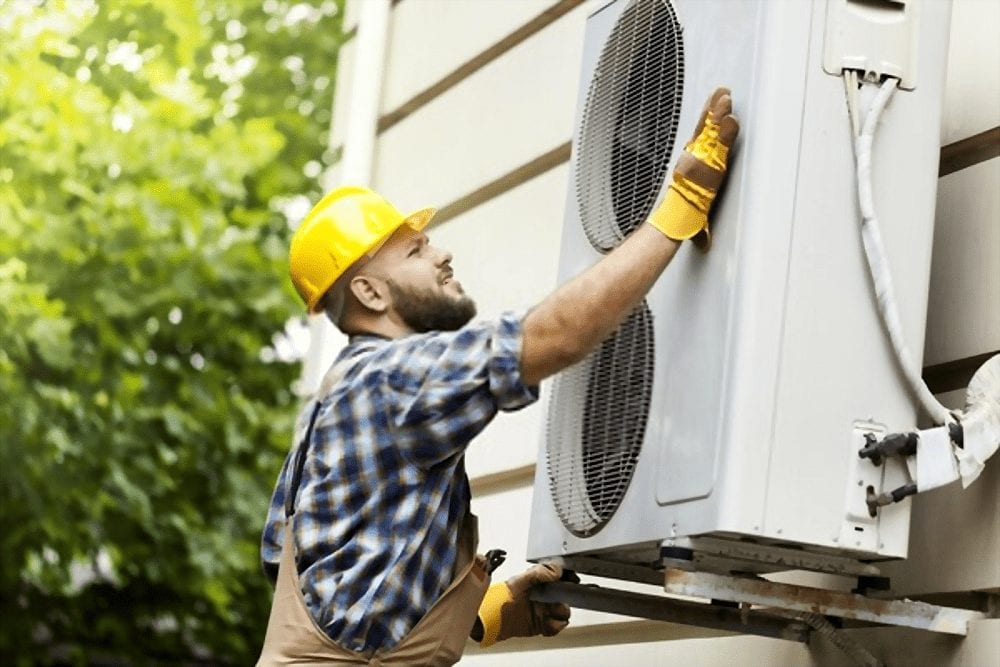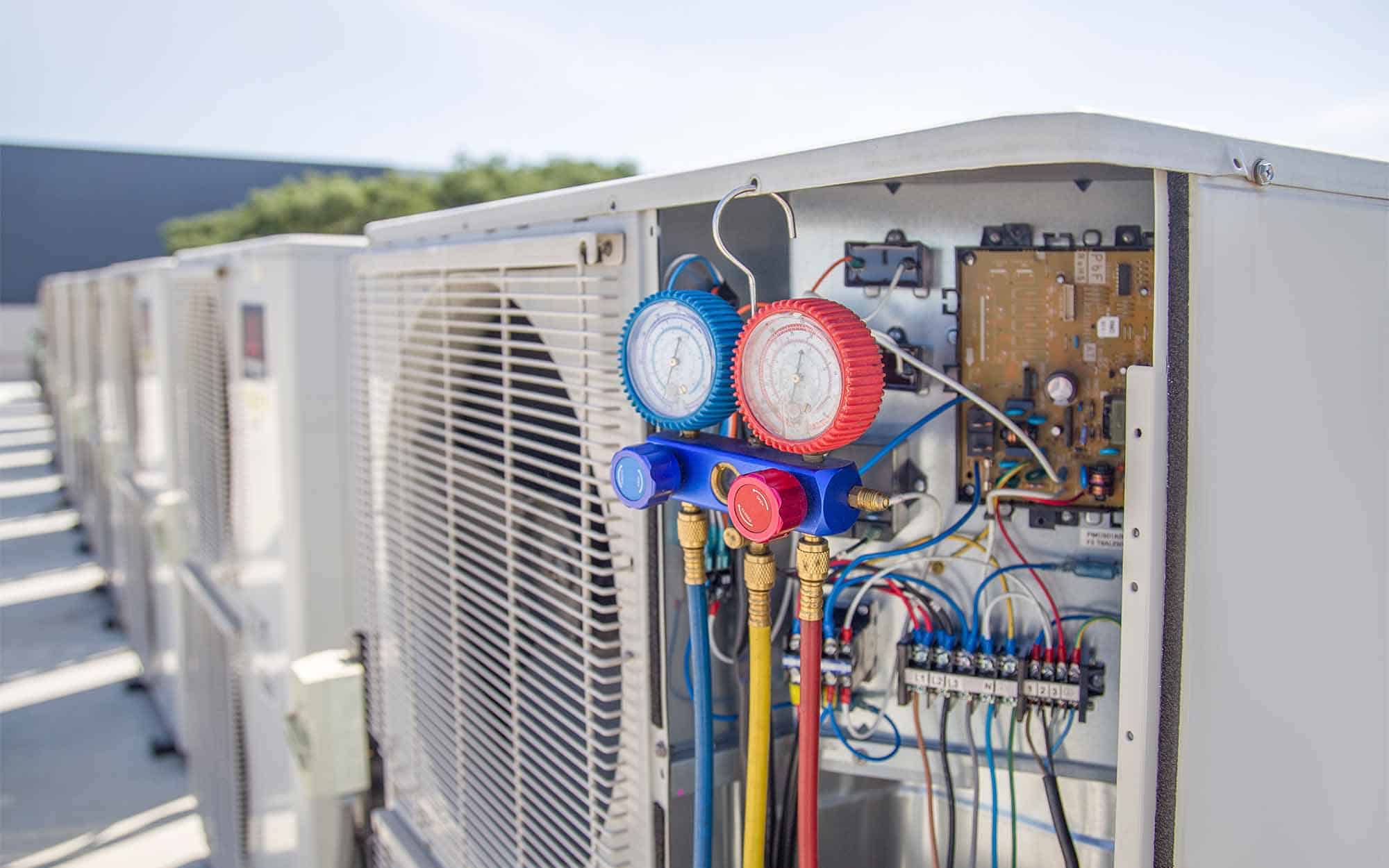Adopting ductless mini splits: A Wise Investment for Energy-Efficient Living
Adopting ductless mini splits: A Wise Investment for Energy-Efficient Living
Blog Article
Choosing Between a Heatpump and Heating System: Key Considerations for Your Cooling And Heating Needs
When evaluating home heating options for a/c requires, the choice in between a warmth pump and a heating system can be intricate. Each system offers unique advantages customized to details climates and energy effectiveness goals. Recognizing these differences is essential for making an enlightened option. Trick elements such as installment prices and environmental effect even more make complex the choice procedure. Which alternative truly aligns with one's comfort and sustainability preferences? The following areas will certainly check out these factors to consider carefully.
Comprehending Warm Pumps: How They Work and Their Advantages
While lots of property owners take into consideration different heating options, comprehending how heatpump function and their benefits can substantially influence their decision. Heatpump run by moving warm as opposed to producing it. In the winter, they extract warm from the outdoors air or ground and move it indoors, while in the summer season, they reverse this procedure, cooling down the home by getting rid of heat outside. This dual capability makes them versatile for year-round environment control.One of the main benefits of heatpump is their power efficiency. They use substantially much less electricity compared to typical heater, possibly resulting in lower utility expenses (ductless mini splits). Additionally, heatpump have a smaller carbon footprint, making them an eco-friendly option. They also call for much less upkeep than standard systems, contributing to long-term expense financial savings. Overall, comprehending the auto mechanics and benefits of heatpump can assist property owners make notified decisions regarding their home heating and cooling down demands
Discovering Heaters: Kinds, Operation, and Advantages
Heating systems can be found in various kinds, consisting of gas, electrical, and oil models, each with unique functional systems. Understanding these differences is essential, as they affect efficiency and heating efficiency. Furthermore, heaters provide numerous advantages, such as constant warmth output and integrity in colder environments.
Kinds of Furnaces
Heater can differ considerably in style and procedure, with heaters being a popular option among home owners. There are numerous kinds of heating systems, each using different fuel sources and innovations. Gas heaters are typical, leveraging all-natural gas to produce warmth effectively. Electric heaters, on the other hand, make use of electrical resistance to create warmth, commonly preferred for their uncomplicated setup. Oil heating systems, while much less usual, are reliable in areas with restricted gas gain access to (furnace replacement). Furthermore, condensing heaters make best use of power effectiveness by capturing and reusing exhaust gases. Each kind operates via a system of warmth exchangers and ductwork to disperse cozy air throughout a home. Comprehending the distinctions between these furnace kinds is crucial for notified a/c choices
Advantages of Furnaces
For house owners looking for dependable warmth during chilly months, the advantages of heating systems are substantial. Heating systems supply consistent heating, making sure even temperature levels throughout the home. They are specifically reliable in extreme cold, frequently outperforming warmth pumps in freezing conditions. Various types, consisting of gas, electrical, and oil heaters, use adaptability to satisfy diverse demands and preferences.Furnaces additionally often tend to have reduced preliminary installment costs compared to heatpump, making them a much more accessible alternative for several. Their robust design adds to a much longer life-span, with lots of units lasting over 15 years with proper maintenance. In addition, contemporary heaters are usually equipped with sophisticated modern technology for improved performance, which can result in decreased energy bills. On the whole, heaters stay a reliable selection for reliable home heating.

Energy Effectiveness: Comparing Heat Pumps and Furnaces
When comparing energy effectiveness between heatpump and heaters, the Seasonal Power Performance Ratio (SEER) plays an important duty in establishing performance. In addition, a functional cost analysis discloses the long-term economic effects of each system. Comprehending these elements can assist house owners in making notified choices regarding their home heating options.
Seasonal Energy Performance Proportion
Energy effectiveness plays an important role in the decision-making procedure between warm pumps and heaters, specifically when taking into consideration the Seasonal Energy Efficiency Proportion (SEER) This statistics measures the cooling efficiency of heatpump over an entire cooling season, giving a standard method to evaluate performance. Higher SEER rankings show higher energy effectiveness, equating to reduced power intake and decreased utility bills. In contrast, heating systems are usually evaluated utilizing the Yearly Gas Application Effectiveness (AFUE) rating, which reflects home heating efficiency. When comparing these 2 systems, house owners need to focus on SEER scores for heatpump, as they straight effect general energy cost savings and ecological sustainability. A detailed understanding of SEER can notably affect the long-lasting fulfillment and cost-effectiveness of the chosen heating and cooling solution.
Functional Expense Analysis
Recognizing the functional costs related to heatpump and furnaces is vital for home owners assessing their choices. Heat pumps normally supply greater power effectiveness, converting electric power right into warmth with marginal waste. This causes lower monthly utility expenses, specifically in moderate environments. On the other hand, standard furnaces, particularly gas versions, may have lower in advance costs however can sustain higher operational expenditures with time as a result of fuel rates and effectiveness ratings.Moreover, warmth pumps can function as both heating and cooling down systems, possibly reducing the demand for different HVAC devices. While first financial investments for heatpump may be higher, their long-term financial savings in energy efficiency can make them a more affordable choice for lots of houses. Cautious analysis of regional power prices is vital to identify the most effective alternative.
Setup Expenses: What to Expect for Each Heating System
Installation costs for heating unit can differ substantially in between heatpump and furnaces, affecting house owners' decisions. Warmth pumps usually have higher upfront installation expenses, typically varying from link $3,500 to $8,000, relying on the device size and complexity of installation. This includes the exterior system, indoor handling system, and essential ductwork modifications. Alternatively, heaters have a tendency to have reduced first costs, averaging between $2,500 and $6,000, which can be appealing for budget-conscious house owners. However, installation expenditures can increase if extensive ductwork is required.Moreover, the selection of fuel kind for furnaces-- natural gas, lp, or electrical-- can additionally impact installation costs. While heatpump provide energy efficiency, their first investment might hinder some customers. Eventually, examining installment expenses alongside lasting financial savings and efficiency will help house owners in making educated choices regarding their furnace.
Climate Considerations: Which System Executes Much Better in Your Location
Just how do climate conditions influence the performance of home heating systems? The efficiency of heat pumps and heating systems can vary significantly depending upon the neighborhood climate. In modest environments, warmth pumps excel by successfully moving warmth from the outside air, making them an energy-saving choice. Their performance lessens in incredibly chilly temperature levels, where they might battle to draw out enough heat. On the other hand, furnaces, particularly gas versions, give consistent and dependable heat no matter outdoor problems, making them more suitable in colder regions.In areas that experience milder winters, heatpump can operate effectively year-round, offering visit this site both heating & cooling. In contrast, regions with severe winters months often gain from the robustness of heaters. Ultimately, understanding the local climate is important when choosing between Read More Here a heatpump and a heater, as it straight influences their functional effectiveness and general performance.
Maintenance Demands: Long-Term Care for Heat Pumps vs. Furnaces
While both heatpump and furnaces require regular maintenance to ensure peak efficiency, their certain needs and care routines vary significantly. Furnaces normally require much less constant focus, with yearly examinations being adequate to examine for gas leakages, clean filters, and analyze general performance. Their less complex design typically enables for uncomplicated repairs.In contrast, heatpump necessitate semiannual maintenance as a result of their double role in heating & cooling. This includes cleansing coils, inspecting cooling agent levels, and making certain that both the outside and interior systems operate at their best. In addition, warmth pump maintenance typically involves even more intricate elements, making specialist servicing essential.Neglecting maintenance can result in lessened performance and raised energy expenses for both systems. Inevitably, homeowners need to consider these long-term care needs when selecting in between a heatpump and a heater, as proactive maintenance can prolong the life-span and efficiency of either system considerably.
Environmental Effect: Picking a Sustainable Heating Choice
The ecological impact of heater is an important examination for house owners seeking lasting alternatives. Heatpump are typically a lot more energy-efficient than typical furnaces, as they transfer heat instead of produce it, greatly reducing carbon discharges. By utilizing renewable power sources, such as geothermal or air-source heatpump, house owners can better lessen their eco-friendly footprint.On the various other hand, gas heaters emit greenhouse gases and contribute to air contamination, though they usually provide greater warm outcome. Nonetheless, improvements in innovation have caused the advancement of high-efficiency furnaces that decrease emissions.Ultimately, selecting a heating system entails evaluating effectiveness against environmental influence. Homeowners are encouraged to review regional power sources and rewards for eco-friendly systems, guaranteeing a choice that aligns with both personal convenience and ecological obligation. The decision influences not only instant comfort however also lasting sustainability and environmental wellness.
Often Asked Inquiries
Exactly How Lengthy Do Warm Pumps and Furnaces Typically Last?
The life-span of heat pumps commonly ranges from 15 to two decades, while heating systems can last in between 15 to 30 years. Routine upkeep significantly influences their longevity and effectiveness in providing heating options.
Can I Make Use Of a Heatpump in Very Cold Climates?
Heat pumps can operate in very cold climates, however their performance decreases as temperature levels drop. In such conditions, additional home heating resources might be necessary to preserve comfy interior temperatures and guarantee peak efficiency.

What Is the Sound Level of Warmth Pumps Versus Furnaces?
The sound levels of warm pumps and furnaces differ considerably. Typically, warmth pumps operate more silently than conventional furnaces, making them more suitable for those conscious seem, while furnaces might produce louder functional noises throughout heating cycles.
Are Warm Pumps Suitable for Both Heating & Cooling?
Warmth pumps are undoubtedly appropriate for both heating and air conditioning (heat pump replacement ooltewah tn). They work by transferring heat, supplying efficient temperature control year-round, making them a functional option for homeowners seeking an all-in-one cooling and heating solution
What Dimension Furnace Do I Need for My Home?
Determining the ideal size heater for a home calls for reviewing elements such as square video, insulation quality, neighborhood climate, and the home's format. Consulting a professional can ensure a precise analysis and perfect convenience. Warmth pumps typically use greater power efficiency, transforming electric energy into warmth with minimal waste. In moderate climates, warmth pumps excel by efficiently moving warmth from the outdoors air, making them an energy-saving option. On the other hand, heating systems, specifically gas models, provide consistent and dependable warmth regardless of outside problems, making them more suitable in colder regions.In locations that experience milder winter seasons, warm pumps can run efficiently year-round, providing both home heating and cooling. Warmth pumps are usually extra energy-efficient than standard furnaces, as they transfer warmth rather than generate it, greatly reducing carbon discharges. By utilizing renewable power resources, such as air-source or geothermal warm pumps, property owners can even more reduce their ecological footprint.On the various other hand, natural gas heating systems produce greenhouse gases and add to air contamination, though they often supply higher warm result.
Report this page